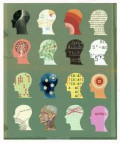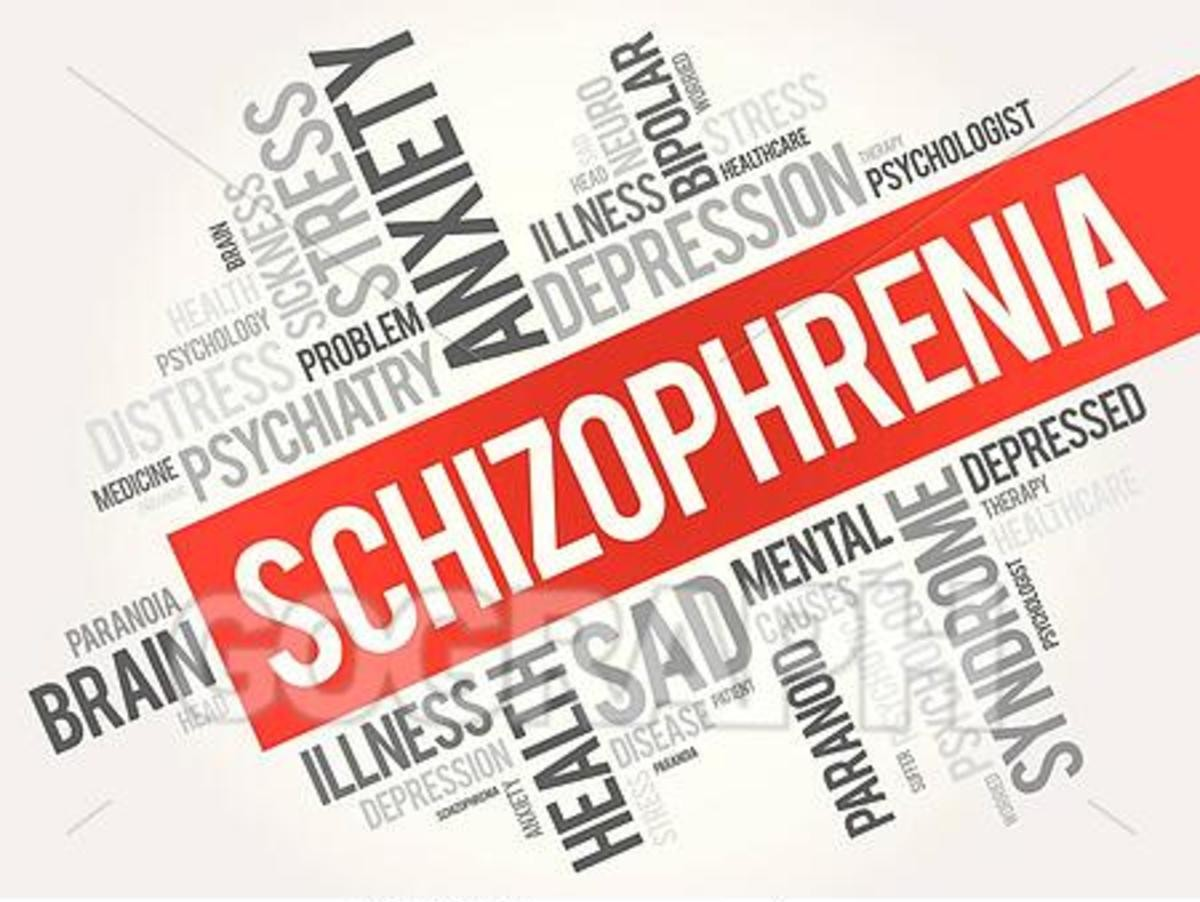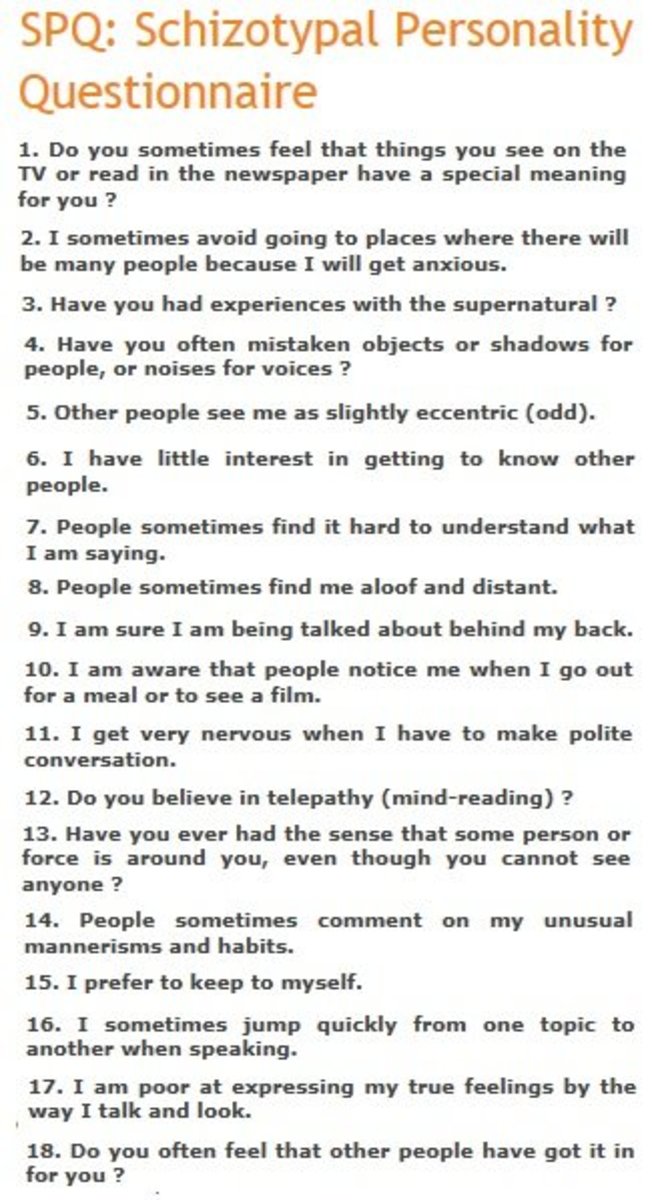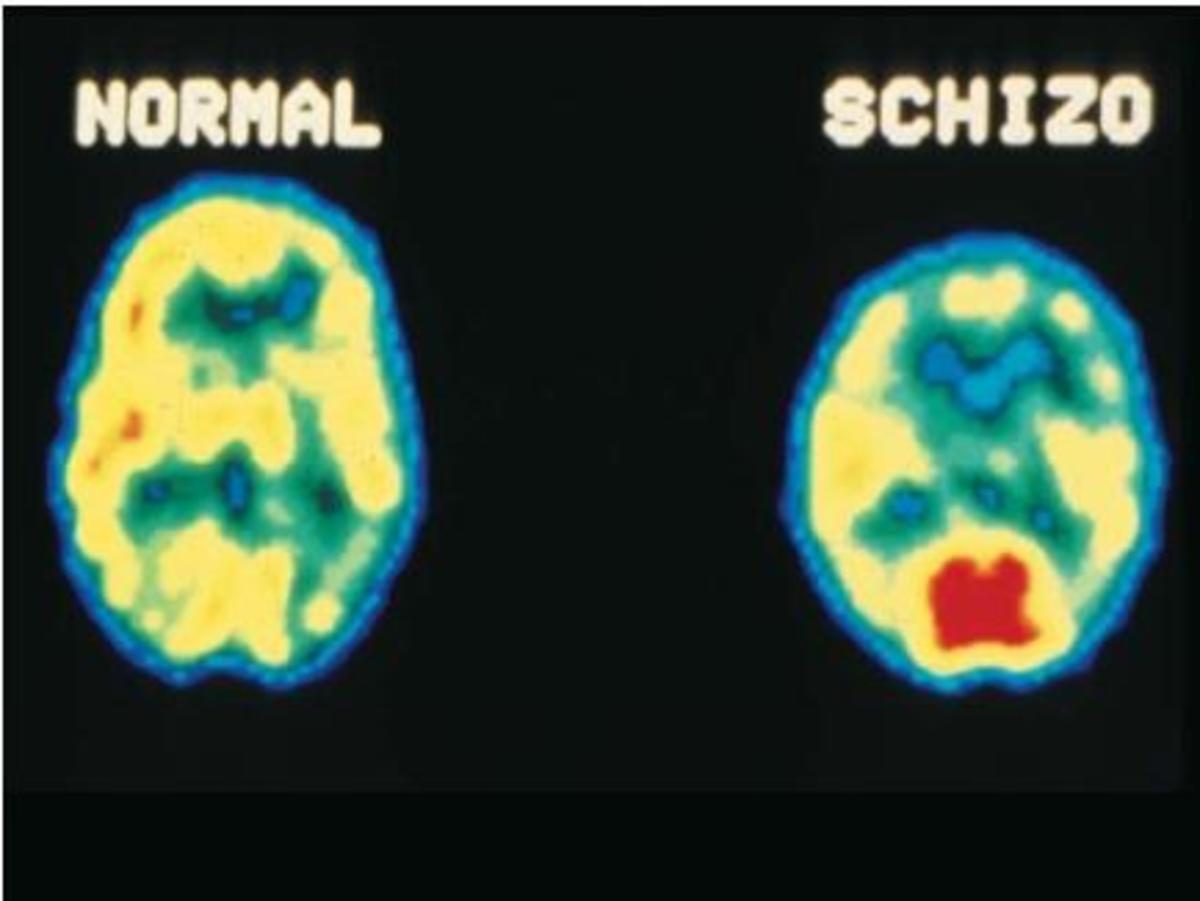The Outlook For Schizophrenia
New Hope for Schizophrenia
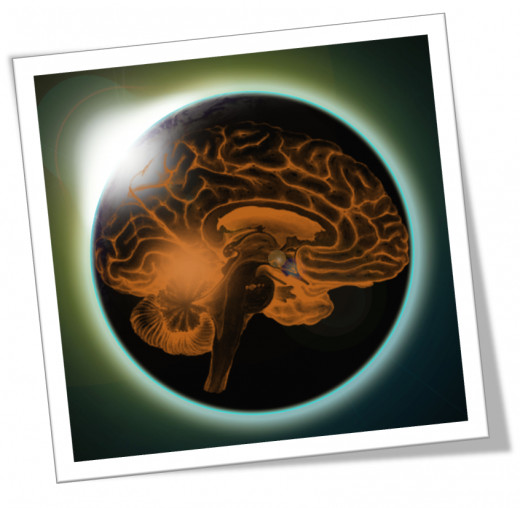
Schizophrenia is a serious mental illness that affects approximately one percent of men and women equally in every country of the world. Usually signs and symptoms appear during the middle-teen years or up until the age of 30. People who are affected generally show symptoms in their early to mid-twenties. Frequently, college students under stress and living away from home may experience their first episode of the mental illness. Schizophrenia may be genetic and does run in families. Twins have been known to be affected by the disease, and there have been instances of one twin and not the other being schizophrenic. Although there is no known cure, the symptoms of the disease can be controlled or reduced with medications that stabilize mood and reduce the emotional anxiety. Schizophrenia may be characterized by:
- Difficulty organizing thoughts
- Rapid changes of moods
- Disturbances in perception
- Visual and auditory Hallucinations: Seeing images and hearing voices
- Major depressive episodes
- May demonstrate a lack of enjoyment or engagement in activities with others
- Paranoia concerning wild accusations about other people as expressed in delusions
- Racing thoughts that lack logical connection known as “flight of ideas”
- Thought blocking is the perception that thoughts have been removed from the brain
What Causes Schizophrenia?
Although the complete mechanism of schizophrenia is not clear, the interference or disturbance in brain chemicals that affect the construction of thought, organization of information, and the balance of mood are said to be involved. Affected persons may not produce enough or create too much of the neurotransmitters that connect and encourage the different parts of the brain to work together. Structures of brain tissues in schizophrenic patients have also been noted with differences than those that do not suffer the condition. In some cases, the brain itself is structured differently and has larger ventricles that are more fluid filled than normal brains. As the brain has less ability to work as a unit, the disturbances are seen in connection, comprehension, and cohesion of ideas and thoughts.

New Medications and Treatments Provide Hope for Schizophrenia
The brain is an incredibly complex organ that necessitates further study; however, the understanding of neurotransmitters of the brain is much better known than even a few years ago. Since there are no medical diagnostic tests to confirm Schizophrenia, it is often diagnosed from history and symptoms. Medications that stabilize the flow of brain chemicals and enhance the connection of brain cells can improve the debilitating effects of schizophrenia. When affected people have major disturbances in the levels of brain chemicals, a break in reality occurs and is called a psychotic episode. The sufferer has lost the connection between what is real to the external body, and what is perceived internally by the brain. Anti-psychotropic medications, including clorazil, focus on maintaining the brain’s connection to reality and have dramatically improved the symptoms for many people who suffer from schizophrenia. Unfortunately, the side effects from these medications have made it impossible for some people to gain the miraculous benefits from clorazil, but other medications with fewer problems are consistently being researched for the purpose of anti-psychotic actions on the brain.
Newer Medications for Schizophrenia are Providing Hope
Medication
| Purpose or Action
| Side Effects
|
|---|---|---|
Clorazil
| Decrease psychosis or psychotic episode
| Suppression of white blood cells and dangerous blood discrepanices
|
Seroquil
| Stabilizes mood and decreases psychosis
| Profound fatigue, tiredness, dry mouth and stomach upset
|
Geodon
| Helps the connection of brain cells and makes them work together
| Heart block and dangerous cardiac symptoms
|
Abilify
| Raises neurotransmitters to improve mood and depression
| Fainting spells, dizziness, and ringing in the ears
|
Zyprexa
| Anti-Psychotic medication that reduces abnormal thinking
| Dry mouth, drowsiness, stomach upset and vivid dreams
|
Invega
| Antidepressant and mood stabilizer
| Muscle tremors, shuffling, and involuntary movements
|
Most side-effects can be dose related and may subside over the course of use. Always follow your physician's instructions and report any undesirable side effect immediately
Psychotherapy and Behaviorial Therapy for Schizophrenia
For those whose symptoms have been stabilized by medications, behavioral therapy can provide excellent insight into their health and wellness. Although challenged by this lifelong illness, many people meet these challenges and live happy and successful lives by employing strategies for communication, maintaining relationships, work and attending school. People who attend psychotherapy are more likely to take their medication and incorporate positive coping mechanisms that assist with the complications that schizophrenia causes in their personal lives. In cognitive behavioral therapy, people learn to test the reality of their thoughts and better manage symptoms. Therapies improve relationship skills, abnormal thinking, and improve independence the ability for self-care.
Better Outcomes for Schizophrenia
With new research studies, investigational drug technologies and psychotherapies, people challenged by schizophrenia have new hope for their future. Family members have educational opportunities to understand the disease and assist their loved ones with the management of psychosis, abnormal thinking, and possible self-harming behaviors. Cognitive behavioral therapy teaches affected persons to test their reality-thinking skills and take more control of their thought process. In turn, the person with schizophrenia develops better relationship skills and improves their self-esteem, place in the community, and increases their job status and independence.

